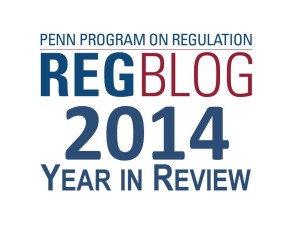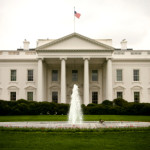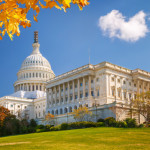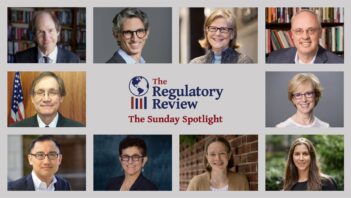
The Regulatory Review celebrates 2014 by featuring our top opinion essays from the past year.
 As the new year arrives, The Regulatory Review would like to reflect on the many important regulatory developments and debates that occurred in the United States and around the world throughout 2014. We also want to recognize some of the excellent work we had the privilege to feature on The Regulatory Review this past year. On these last three days of this year, we are presenting the top essays published in The Regulatory Review over the past twelve months, based on the number of page views for the work appearing in each of our opinion, news, and analysis sections.
As the new year arrives, The Regulatory Review would like to reflect on the many important regulatory developments and debates that occurred in the United States and around the world throughout 2014. We also want to recognize some of the excellent work we had the privilege to feature on The Regulatory Review this past year. On these last three days of this year, we are presenting the top essays published in The Regulatory Review over the past twelve months, based on the number of page views for the work appearing in each of our opinion, news, and analysis sections.
Today we feature, in alphabetical order by author, the top opinion stories from 2014. Visit our “Year in Review” series main page for information about the top news and analysis stories.
Sherzod Abdukadirov (George Mason University) | February 25
Many debates over regulation focus only on the costs of new rules. Critics argue that the weight of regulatory costs depresses economic activity, reduces productivity, and discourages formation of new businesses. Estimates seeking to quantify the total federal regulatory burden range from hundreds of billions to well over a trillion dollars. Regulation advocates, in contrast, claim that many of those estimates exaggerate the costs of regulation.
 Why We Need to Measure Regulation
Why We Need to Measure Regulation
Omar Al-Ubaydli (George Mason University) & Patrick McLaughlin (George Mason University) | December 8
How much should governments regulate? Economists attach huge significance to this question because the difference between rich and poor countries can be affected by variation in government quality, especially the extent to which the legal system protects property and encourages innovation and investment.
Katherine Bassett (National Network of State Teachers of the Year) | August 19
Students and teachers are heading back to school filled with the excitement of new discoveries, adventures in learning, and new relationships. At the same time, teachers are confronting initiatives that have the potential to strengthen their teaching or make their success in the classroom much more difficult.
 The Role of Permits in the Regulatory State
The Role of Permits in the Regulatory State
Eric Biber (UC Berkeley School of Law) & J.B. Ruhl (Vanderbilt Law School) | July 1
Millions of permits are issued all the time by local, state, and federal agencies to allow businesses to proceed with otherwise-prohibited actions. Yet despite the importance of permits to how the modern administrative state operates and how administrative lawyers practice, they have received scant attention in the academic literature, or even in the casebooks that teach administrative law.
 Regulating the “Sharing Economy”
Regulating the “Sharing Economy”
Eric Biber (UC Berkeley School of Law) & J.B. Ruhl (Vanderbilt Law School) | July 28
The “sharing economy” is booming. But the same web-facilitated transactions that allow individuals to contract with each other for various services, such as lodging and transportation, also present a difficult challenge for government regulators.
 Regulatory Science and the TTIP
Regulatory Science and the TTIP
Reeve T. Bull (George Mason University) & Adam C. Schlosser (U.S. Chamber of Commerce) | July 14
Following decades of advances in recombinant DNA technology, scientists began inserting foreign genes into food crops in order to confer beneficial properties such as disease-resistance and improved yield. Over the ensuing years, so-called genetically modified foods became increasingly common in U.S. agriculture, gradually displacing more traditional crops.
 It’s Time to Make Rulemaking Really Transparent on Agency Websites
It’s Time to Make Rulemaking Really Transparent on Agency Websites
Cary Coglianese (University of Pennsylvania Law School) | August 11
People spend an increasing amount of time online for social interaction, online shopping, entertainment, and work. When they want to find government information or interact with government agencies, they also increasingly go online. As a result, agency websites have become a key vehicle for public interaction with the federal government over the last fifteen years.
 Are Voluntary Environmental Programs the Answer?
Are Voluntary Environmental Programs the Answer?
Cary Coglianese (University of Pennsylvania Law School) & Jennifer Nash (Harvard University’s John F. Kennedy School of Government) | April 28
Since passage of most major environmental statutes in the 1970s and 1980s, environmental lawmaking at the federal level has ground to a virtual standstill. With today’s gridlock in Congress, the prospect appears dim of securing passage of new environmental legislation on climate change or other environmental concerns.
 The False Dichotomy of Agency Independence
The False Dichotomy of Agency Independence
Kirti Datla (Clerk for Judge Jeffrey S. Sutton) & Richard L. Revesz (New York University School of Law) | May 5
When Congress creates an agency, it is clear that legislative design choices will affect the ability of Congress, the president, and interest groups to influence that agency.
 Regulatory Transparency Should be a Two-Way Street
Regulatory Transparency Should be a Two-Way Street
Adam M. Finkel (University of Pennsylvania Law School) | May 12
Anyone can “publish” anything on the Web anonymously, under an alias, or even using someone else’s identity. But, if you want to publish scientific results or interpretations in a peer-reviewed journal, you are now expected to submit them under your real name, disclose who may have paid you to conduct the research or interpret the findings, and also reveal any important relationships or experiences that may call into question your objectivity.
 Long-awaited Money Market Regulatory Reform Falls Short
Long-awaited Money Market Regulatory Reform Falls Short
Jill E. Fisch (University of Pennsylvania Law School) | August 4
By a split 3-2 vote, the U.S. Securities and Exchange Commission recently adopted a final rule designed to reduce the risk of a run on money market funds and to limit potential contagion if a run does occur. In the words of Commission Chair Mary Jo White, the new rule “will fundamentally change the way that most money market funds operate.”
 Is it Time to Reconsider Chevron Deference?
Is it Time to Reconsider Chevron Deference?
Ann R. Klee (General Electric) | September 8
As this year marks the thirtieth anniversary of the Supreme Court’s landmark decision in Chevron U.S.A. v. Natural Resources Defense Council, it is both timely and appropriate to ask: have the courts gone too far in deferring to agency interpretations of the law, and indeed, to agency decisions in general?
 There is More to Mandatory Disclosure than Meets the Eye
There is More to Mandatory Disclosure than Meets the Eye
Timothy D. Lytton (Albany Law School) | October 27
Requiring hospitals to inform patients of clinical best practices and to disclose performance data are two common regulatory strategies for improving health care. Proponents of such mandatory disclosure laws — sometimes referred to as “targeted transparency” — argue that these laws enhance patients’ ability to make informed choices in choosing their health care providers, thereby creating reputational incentives for hospitals to improve their performance.
Patrick McConnell (Macquarie University) | March 31
A good risk culture has often been identified as a prerequisite for improving risk management in regulated banks, and some regulators have recently called for improvements in the risk culture of banks, especially the large financial institutions considered Systemically Important Banks (SIBs). But the term “risk culture” is not well defined. Instead, it is often described by equally vague concepts such as “tone at the top,” and “walk the talk.”
 Internalizing Cost-Benefit Analysis
Internalizing Cost-Benefit Analysis
Jennifer Nou (University of Chicago Law School) | February 18
Before an agency completes a cost-benefit analysis subject to oversight by the White House Office of Information and Regulatory Affairs, or by the courts if an agency decision is litigated, what forms of internal review of that analysis should the agency undertake on its own?
 Why Have No High-level Executives Been Prosecuted?
Why Have No High-level Executives Been Prosecuted?
The Hon. Jed S. Rakoff (U.S. District Court for the Southern District of NY) | January 13-16
The 2008 financial crisis shook the U.S. and the world to their cores. Confidence in the global banking system collapsed, and the world economy entered a recession. The consequences of the crisis continue to linger more than five years later. A recent employment report announced that almost 4 million Americans have been out of work for more than six months.
 Dodd-Frank’s Regulatory Morass
Dodd-Frank’s Regulatory Morass
Roberta Romano (Yale Law School) | November 10
Four years after enactment, all 280 of the Dodd-Frank Act’s specified rulemaking deadlines have elapsed, with 45% having been missed. Of the Act’s 398 rulemaking requirements, slightly more than half (52%) have been finalized, while nearly one-quarter (24%) have not yet even been proposed.
Arden Rowell (University of Illinois College of Law) | October 21
A rash of recent news stories have documented Americans’ increasing fear of Ebola. That fear is unpleasant, and it can be costly and even dangerous. But it also can be an opportunity for the government officials who will be coordinating the federal response to outbreak risk.
 Two Cheers for Recess Appointments
Two Cheers for Recess Appointments
Peter Shane (Ohio State University) | June 26
As losses go, NLRB v. Noel Canning is going to be pretty easy for the National Labor Relations Board (NLRB) and future presidents to live with. In a 5-to-4 vote, the U.S. Supreme Court held that Article II’s Recess Appointments Clause empowers presidents to fill vacancies that occur at any time and during any recess—intra-session or intersession—of sufficient length.
 Learning from Advocacy for Energy Efficient Building Codes
Learning from Advocacy for Energy Efficient Building Codes
Shari Shapiro (Penn Program on Regulation) | September 4
Efforts over the past decade to increase energy efficiency through building codes holds lessons that can be applied to any type of controversial regulation.
Sidney A. Shapiro (Wake Forest University School of Law) & Joseph P. Tomain (University of Cincinnati College of Law) | March 24
Americans have a noted ambivalence about their relationship to government. At times, government is used as the vehicle to achieve the collective values of the country, providing a range of services and protections necessary for citizens to lead productive and useful lives. At other times, government is feared as too big and too intrusive.
 The Problem of Political Ignorance
The Problem of Political Ignorance
Ilya Somin (George Mason University) | February 3
Democracy is intended to be rule by the people. But all too often, the people have all too little understanding of what they rule over. Political ignorance is a ubiquitous and persistent problem in modern democracy. It strengthens the case for limiting and decentralizing political power, and for judicial review.
Stephen D. Sugarman (UC Berkeley School of Law) | February 10
Many public health advocates call for a tax on sodas and other sugary beverages. Others are calling for a wider tax on sugar that would help block the shift from buying sweetened drinks to buying other sweets that would likely occur if a tax is narrowly focused on beverages. In either case, the primary goal of a tax would not be to raise money. Rather, the point would be to improve diets by reducing the sugar we consume.
 The Administrative State and the Optimal Abuse of Power
The Administrative State and the Optimal Abuse of Power
Adrian Vermeule (Harvard Law School) | June 2
Fear of the abuse of official power is and always has been a central thread in American constitutional discourse and political psychology…. Llibertarians of the left tend to urge precautions against executive powers of surveillance and detention, whereas libertarians of the right urge precautions against administrative regulation and putative takings of property rights; but the rhetoric and structure of argumentation is interestingly similar across cases.
 Chevron Deference for the U.S. Patent and Trademark Office
Chevron Deference for the U.S. Patent and Trademark Office
Melissa Wasserman (University of Illinois College of Law) | April 14
For over two hundred years, courts have dominated patent policy. The U.S. Patent and Trademark Office lacks robust substantive rulemaking authority and its historical adjudicatory powers, including the adjudication of patent denials, has been informal in nature. In fact, the PTO’s reviewing court … has not afforded the PTO’s legal interpretations any deference, much less strong judicial deference. This, however, may be about to change.
[box style=”0″]
Author affiliations are provided in this list for identification purposes only. All views expressed are those of the authors and do not necessarily represent those of the affiliated organizations.
[/box]









